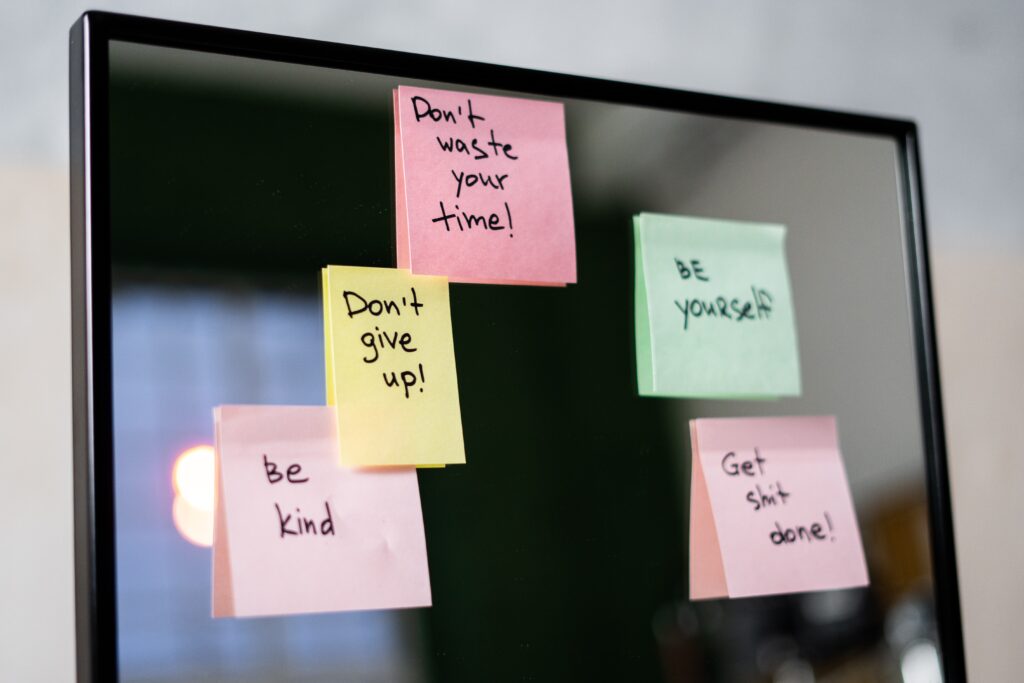

Have you ever been in a tough situation and needed support from a friend or family member? When you finally reached out they decided to respond with an overly positive statement? One that seemingly turned a blind eye to the problem at hand and minimized your true feelings?
Phrases like “it could be worse”, “it is what it is” or “positive vibes only” are clear signs of toxic positivity. Toxic positivity is the belief that no matter how unfortunate a situation is that people should remain in a positive mindset. While remaining positive and optimistic is valuable in situations, too much of this type of thinking is not always healthy or productive.
Positivity when expressed authentically is a wonderful tool for keeping spirits high and maintaining a healthy outlook in life. Positivity can help some individuals cope with situations but doesn’t always equate to a solution for all people. When using positive statements we must acknowledge that we as humans have many complex emotions both positive and negative to help us respond to different events in our lives. All emotions are ways we guide our daily decision making. These uncomfortable or unpleasant emotions help guide us in our lives. By being upset or mourning a loss lets us know what we lost was important or meaningful. When we feel anxious this is our body’s way of telling us to be alert and acknowledge what is happening in our surrounding area. With toxic positivity we are not allowing for others or ourselves to experience and listen to our bodies. We are leaving out a part of our decision making by solely focusing on those happy feelings. For example, erasing all negative emotions from our daily lives and interactions with others could result in your feelings not being validated and feeling as if your situation has been unjustly minimized. By addressing toxic positivity you must come to terms with accepting yours or another’s situation as a whole. Accepting an individual’s situation whether positive or negative will allow you to validate and decrease the intensity of the negative emotions.

When dealing with toxic positivity towards ourselves it is completely fine to remember that you are allowed to feel down and express those emotions in healthy ways. Expressing negative emotions in healthy ways can look like engaging in self care for the evening if you had a really tough day (such as listening to songs you enjoy or going to a yoga session) or it could be as simple as journaling to write out your thoughts and emotions. Another effective tool is to go and validate your emotions with a trustworthy friend that knows how to hold space for you and listen to you. Phrases like “failure is part of success and growth.” or “I’m here for you, tell me what’s upsetting you.” are much more considerate and establish a stronger sense of care and support for each other. Acknowledging how challenging someone’s situation is and letting them know you’re thinking of them is a great way to help validate others emotions.
Overall positivity can be a wonderful source to lift spirits and encourage others. However, too much positivity can come off as minimizing your feelings and not truly letting them be heard and validated. Simple changes in our wording can help fix the way we make others or ourselves feel. Additionally self care techniques like self love and journaling or talking with a friend or family member that can listen will help reduce the chances of toxic positivity in your life.
Our coaches at LifeTutors understand the damage that toxic positivity can cause. When interacting with clients, they ensure that they validate the emotions the client is feeling and help them process what they are experiencing. Through validation they are allowing the client to feel heard, which not only helps a person cope with negative experiences, but also helps build rapport and trust between the client and coach.








